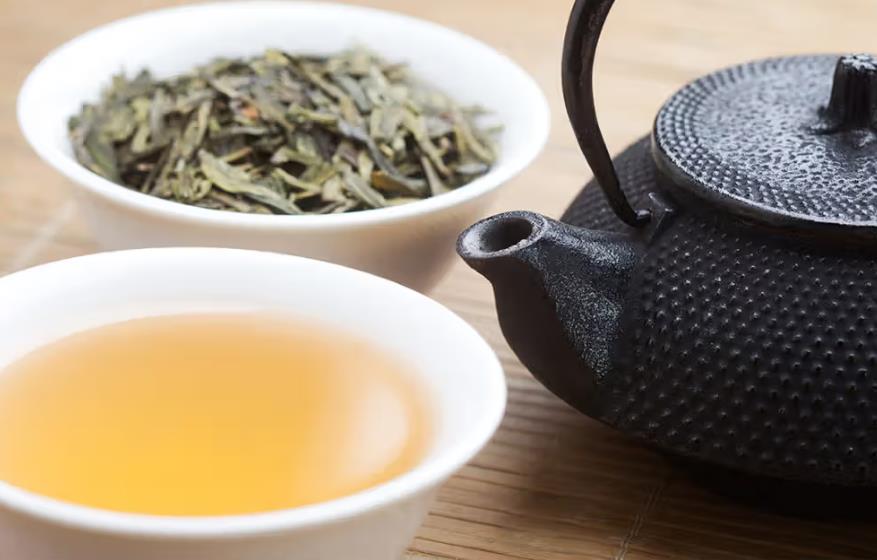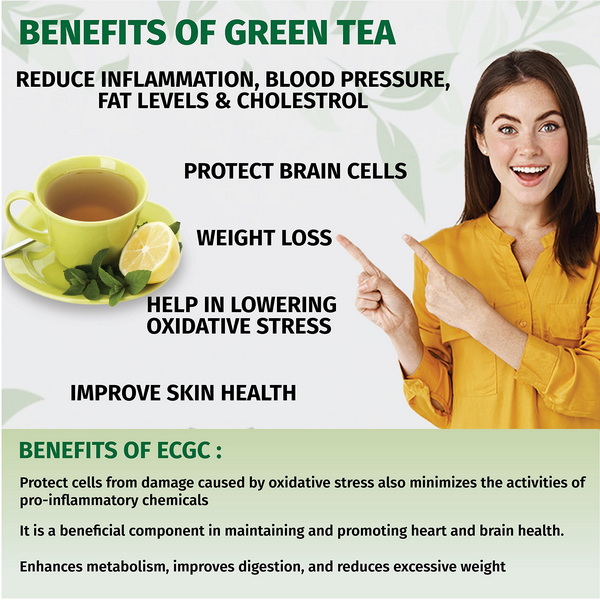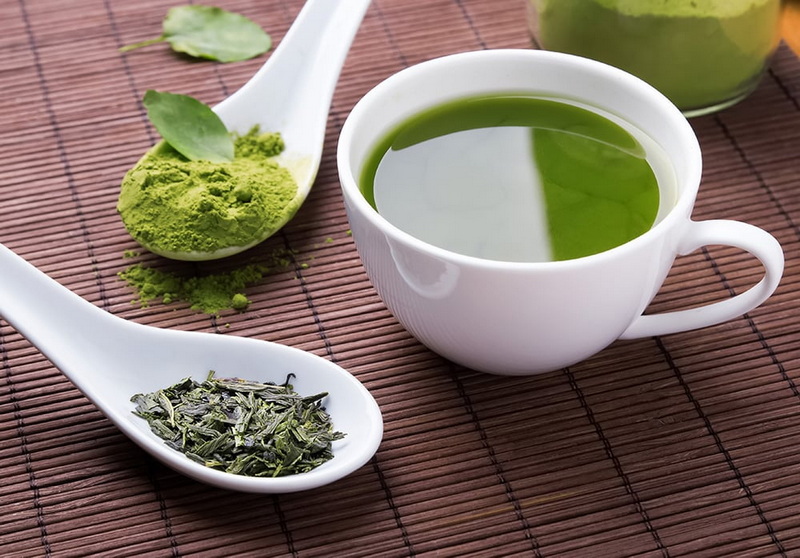Content Menu
● Understanding Green Tea Extract
>> Key Compounds in Green Tea Extract
● The Science Behind Mental Focus
● Mechanisms of Action
● Evidence from Research Studies
● Practical Implications
● Potential Side Effects
● Lifestyle Factors That Enhance Cognitive Function
● Conclusion
● FAQ
>> 1. What is the main active ingredient in green tea extract?
>> 2. How does caffeine in green tea affect mental focus?
>> 3. Can green tea extract help with anxiety?
>> 4. How much green tea should I consume daily for cognitive benefits?
>> 5. Are there any side effects associated with excessive consumption of green tea extract?
● Citations:
Green tea has been a staple in various cultures for centuries, celebrated not only for its unique flavor but also for its myriad health benefits. Among these benefits, the potential of green tea extract to enhance mental focus and cognitive function has garnered significant attention in recent years. This article delves into the science behind green tea extract, exploring its effects on mental clarity, memory, and overall brain health.

Understanding Green Tea Extract
Green tea extract is derived from the leaves of the *Camellia sinensis* plant. Unlike black tea or oolong tea, green tea is minimally processed, which helps retain a higher concentration of beneficial compounds, particularly catechins. The most notable catechin in green tea is epigallocatechin gallate (EGCG), known for its powerful antioxidant properties.
Key Compounds in Green Tea Extract
- Caffeine: A well-known stimulant that can enhance alertness and improve mood.
- L-Theanine: An amino acid that promotes relaxation without sedation, often working synergistically with caffeine to improve focus and cognitive performance.
- Catechins: These antioxidants help combat oxidative stress and inflammation, contributing to overall brain health.
The Science Behind Mental Focus
Numerous studies have investigated the cognitive-enhancing effects of green tea extract. Research indicates that the combination of caffeine and L-theanine may lead to improved attention and reaction time. A study published in 2014 found that participants who consumed green tea extract showed increased connectivity between the frontal and parietal lobes of the brain during working memory tasks. This enhanced connectivity was associated with better task performance, suggesting that green tea extract may indeed improve mental focus.
Mechanisms of Action
The cognitive benefits of green tea extract can be attributed to several mechanisms:
1. Increased Neurotransmitter Activity: Caffeine stimulates the release of neurotransmitters such as dopamine and norepinephrine, which play crucial roles in mood regulation and cognitive function.
2. Enhanced Brain Connectivity: As mentioned earlier, studies have shown that green tea extract can enhance connectivity between brain regions involved in memory and attention.
3. Reduction of Anxiety: L-theanine has been shown to reduce anxiety levels, which can indirectly improve focus by creating a calmer mental state conducive to concentration.
4. Neuroprotective Effects: The antioxidants found in green tea extract may protect neurons from damage caused by oxidative stress, potentially reducing the risk of neurodegenerative diseases.
5. Improved Blood Flow: Some studies suggest that compounds in green tea can improve blood flow to the brain, which may enhance cognitive function by ensuring that brain cells receive adequate oxygen and nutrients.
Evidence from Research Studies
Several studies provide compelling evidence for the cognitive benefits of green tea extract:
- A study involving healthy adults demonstrated that those who consumed a beverage containing green tea extract performed better on tasks requiring working memory compared to those who did not consume it.
- Another research effort highlighted that regular consumption of green tea was associated with better cognitive function among older adults, particularly in areas related to memory and executive function.
- A meta-analysis concluded that both acute and chronic consumption of green tea could lead to improvements in cognitive performance, particularly in tasks requiring sustained attention.
- In a randomized controlled trial, participants who took a green tea extract supplement showed significant improvements in attention and working memory compared to a placebo group.

Practical Implications
Given the potential benefits, incorporating green tea extract into one's daily routine may be advantageous for those seeking to enhance their mental focus. Here are some practical ways to do so:
- Supplements: Green tea extract is available in capsule form, providing a concentrated dose of catechins and other beneficial compounds.
- Beverages: Drinking brewed green tea daily can also deliver these benefits while providing hydration.
- Mindful Consumption: Combining green tea with other healthy lifestyle choices—such as a balanced diet and regular exercise—can further enhance cognitive health.
- Timing Matters: Consuming green tea or its extracts at strategic times—such as before studying or engaging in mentally demanding tasks—may maximize its cognitive benefits.
Potential Side Effects
While green tea extract is generally considered safe for most people when consumed in moderation, excessive intake can lead to side effects. These may include:
- Digestive Issues: High doses may cause stomach upset or nausea in some individuals.
- Insomnia: Due to its caffeine content, excessive consumption can interfere with sleep patterns.
- Liver Toxicity: Rare cases have been reported where excessive intake of concentrated green tea extracts led to liver damage.
It's essential for individuals considering supplements to consult with healthcare professionals, especially if they have pre-existing conditions or are taking medications.
Lifestyle Factors That Enhance Cognitive Function
In addition to incorporating green tea extract into your routine, several lifestyle factors can further support mental focus and cognitive health:
- Balanced Diet: Consuming a diet rich in fruits, vegetables, whole grains, lean proteins, and healthy fats provides essential nutrients that support brain health.
- Regular Exercise: Physical activity increases blood flow to the brain and promotes the growth of new neurons, enhancing overall cognitive function.
- Adequate Sleep: Quality sleep is crucial for memory consolidation and overall mental clarity. Aim for 7-9 hours per night.
- Stress Management: Chronic stress can impair cognitive function. Practices such as mindfulness meditation or yoga can help reduce stress levels.
- Mental Stimulation: Engaging in activities that challenge your brain—such as puzzles, reading, or learning a new skill—can help maintain cognitive health over time.
Conclusion
In summary, there is substantial evidence suggesting that green tea extract can improve mental focus through various mechanisms, including enhanced brain connectivity and reduced anxiety levels. The combination of caffeine and L-theanine found in green tea plays a critical role in these effects. For individuals looking to boost their cognitive performance naturally, incorporating green tea or its extracts into their daily routine may be a worthwhile consideration.
By combining this with other healthy lifestyle choices such as proper nutrition, regular exercise, adequate sleep, stress management practices, and mental stimulation activities, one can create an environment conducive to optimal cognitive performance.

FAQ
1. What is the main active ingredient in green tea extract?
The primary active ingredient in green tea extract is epigallocatechin gallate (EGCG), a powerful antioxidant known for its health benefits.
2. How does caffeine in green tea affect mental focus?
Caffeine enhances alertness and improves mood by stimulating neurotransmitter release, which can lead to better concentration and cognitive performance.
3. Can green tea extract help with anxiety?
Yes, L-theanine found in green tea has been shown to reduce anxiety levels, promoting a calmer state that can enhance focus.
4. How much green tea should I consume daily for cognitive benefits?
Most studies suggest consuming about 2-3 cups of brewed green tea per day or equivalent amounts of concentrated extracts for optimal benefits.
5. Are there any side effects associated with excessive consumption of green tea extract?
While moderate consumption is generally safe for most people, excessive intake can lead to side effects such as liver toxicity or digestive issues. Always consult with a healthcare professional before starting any new supplement regimen.
Citations:
[1] https://naturalmedicines.therapeuticresearch.com/news/news-items/stararchivedstar/2014/april/green-tea-extract-might-improve-memory-and-mental-function.aspx
[2] https://www.healthline.com/nutrition/10-benefits-of-green-tea-extract
[3] https://pubmed.ncbi.nlm.nih.gov/28899506/
[4] https://pmc.ncbi.nlm.nih.gov/articles/PMC4159594/
[5] https://www.youtube.com/watch?v=mpIJOavyYtQ
[6] https://www.urmc.rochester.edu/encyclopedia/content?contenttypeid=19&contentid=GreenTeaExtract
[7] https://www.frontiersin.org/journals/aging-neuroscience/articles/10.3389/fnagi.2022.919766/full






























